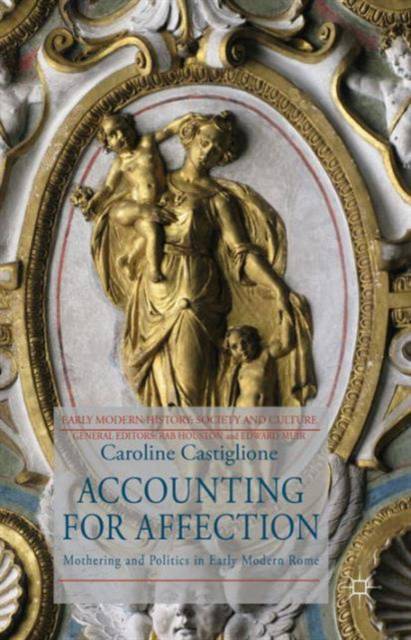
- Retrait gratuit dans votre magasin Club
- 7.000.000 titres dans notre catalogue
- Payer en toute sécurité
- Toujours un magasin près de chez vous
- Retrait gratuit dans votre magasin Club
- 7.000.0000 titres dans notre catalogue
- Payer en toute sécurité
- Toujours un magasin près de chez vous
152,95 €
+ 305 points
Format
Description
Accounting for Affection examines the multifaceted nature of early modern motherhood by focusing on the ideas and strategies of Roman aristocratic mothers during familial conflict. Illuminating new approaches to the maternal and the familial employed by such women, it demonstrates how interventions gained increasing favor in early modern Rome.
Spécifications
Parties prenantes
- Auteur(s) :
- Editeur:
Contenu
- Nombre de pages :
- 315
- Langue:
- Anglais
- Collection :
Caractéristiques
- EAN:
- 9780230203310
- Date de parution :
- 13-03-15
- Format:
- Livre relié
- Format numérique:
- Genaaid
- Dimensions :
- 142 mm x 218 mm
- Poids :
- 576 g

Les avis
Nous publions uniquement les avis qui respectent les conditions requises. Consultez nos conditions pour les avis.






